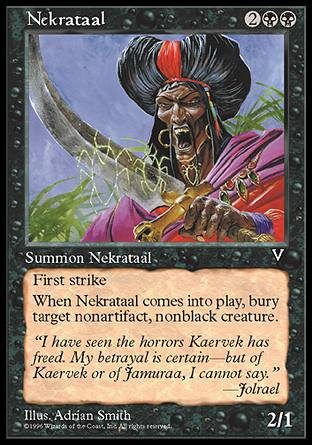Magic Untapped takes a look at a piece of "killer" Magic: The Gathering slang.
Ever since Magic: The Gathering began, there has been slang around it: Aggro, brick, gruul, hoser, mise, rate monster, vomit out, etc. -- these are words most Magic players probably know to some extent but sound kind of crazy out of context.
The origins of most are pretty easy to figure out. Aggro for aggresive, for example. There are also those that became popular from constant use, and then others were based off of other things within the game that just were co-opted for something else like a playing style. But every so often some bit of Magic slang seems to come out of left field. Places such as law enforcement in California.
But we're getting ahead of ourselves.
 Back in the 1990s, the term 187 or 187'd was fairly commonly used to describe when a creature is killed. So where did it come from? It seems like such an odd number to base something like that off.
Back in the 1990s, the term 187 or 187'd was fairly commonly used to describe when a creature is killed. So where did it come from? It seems like such an odd number to base something like that off.
Over the years there has been a lot of rumors where it first came from. One such rumor was that that it came from the card number for the Visions card Nekrataal, as it would kill (or, 187) a creature as an enters-the-battlefield trigger. The problem with that theory, however, is that Visions only consists of 167 cards in total. The math doesn't work out.
Another theory went around was that 187 was the rule number in the game's official rule book that specified how creatures could be killed. Alas, that's not correct, either.
So, what is it really?
In the California Penal Code, 187 lists the official definition of murder.
It's really that simple. And Magic players just kind of took it and ran with it.
And now you know a bit about not just some early Magic: The Gathering slang, but also a bit about the State of California's penal codes.
Do with it what you will.









